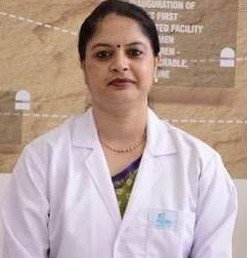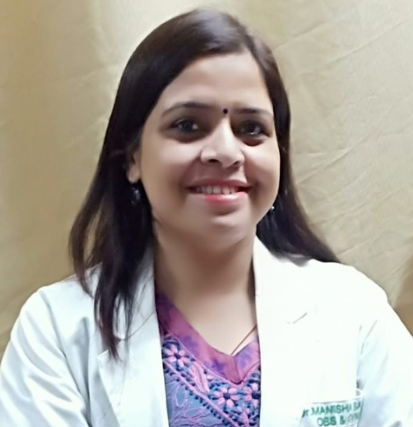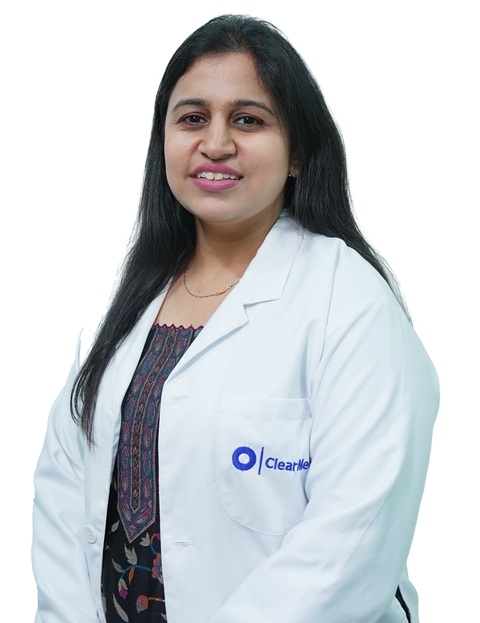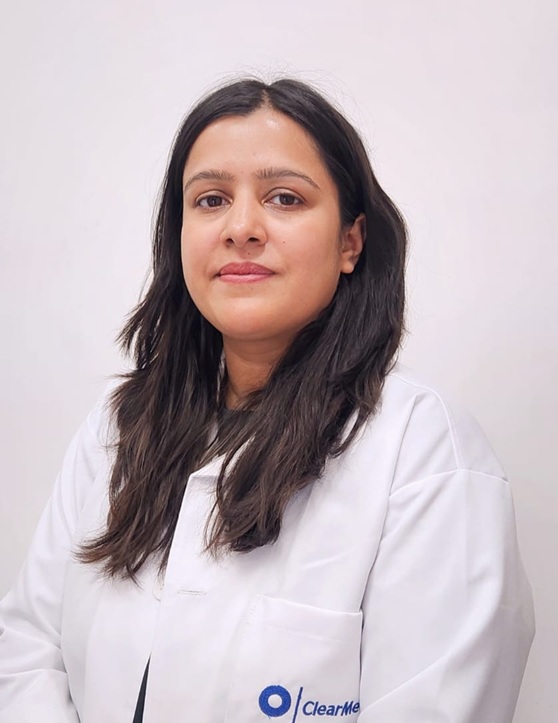Ovarian Cystectomy: Laparoscopic Removal

Treatment Duration
40 Minutes
------ To ------45 Minutes
Treatment Cost
₹ 30,000
------ To ------₹ 80,000

Table of Contents
You can check Ovarian Cyst Surgery Cost here.
About
Anatomy and Physiology
The anatomy and physiology are as follows:
- The female reproductive system includes two almond-shaped structures called ovaries.
- Female hormones (progesterone and oestrogen) are released, and egg cells are stored in the ovaries.
- A fluid-filled sac that develops on or inside the ovary is known as an Ovarian cyst.
- Ovarian cysts are of two types:
1. Functional cysts: These are harmless and occur as a part of ovulation during the normal menstrual cycle. Functional cysts are the most commonly encountered ovarian cysts.
2. Pathological cysts: These cysts occur as a result of other health conditions such as ovarian cancer or polycystic ovary syndrome (PCOS). They are less common.
Figure: Ovarian cyst
Why Is This Procedure Done?
Surgical removal of an ovarian cyst is known as an ovarian cystectomy. In most cases, an ovarian cyst causes very little or no symptoms at all. Surgery to remove the cyst is needed in the following condition:
- Cysts that cause discomfort and pain
- Cysts that are suspected to be cancerous
- When the cyst is greater than two and a half inches in diameter.
What Will Happen if Surgery Is Delayed?
Delaying surgery can lead to the following complications:
- Ruptured ovarian cyst: When a cyst ruptures, it can cause extreme abdominal discomfort and oedema (swelling). A ruptured cyst can result in a significant amount of blood and fluid loss. Low blood pressure can occur as a result of this.
- Torsion (twisting) of the fallopian tube: In rare cases, an ovarian cyst can lead to twisting of the fallopian tube. This can cut off the ovary's regular blood supply. It causes severe pain, as well as nausea and vomiting. It is possible that an emergency surgery will be required.
Expert Doctors (10)
NABH Accredited Hospitals (10)


Procedure Description
Ovarian cysts are removed using either one of the two surgical procedures:
- Laparoscopy
- Laparotomy
1. Laparoscopic Cystectomy:
Laparoscopy is the preferred method of cystectomy for benign cysts.
- The procedure is done under General Anaesthesia
- During this surgical procedure, the surgeon makes small incisions on the abdomen near the navel.
- Through one incision, a laparoscope (which contains a thin tube with a camera) is inserted in the abdomen.
- Using the laparoscope, the surgeon can visualise the reproductive organs and pelvic cavity
- In order to create extra space between your abdominal wall and internal organs, air will be pumped into your abdomen.
- The surgeon then uses surgical instruments to remove the cysts through the incisions.
- The cuts will be repaired with dissolvable stitches after the cyst has been removed
- You will be able to go home on the same day or the next day.
- Shorter hospital stay, quicker recovery time, less blood loss, fewer operative complications.
2. Laparotomy Cystectomy:
Laparotomy is recommended if the cyst is cancerous or very large in size.
- The procedure is done under General Anaesthesia
- A laparotomy is a procedure in which a single, bigger cut is made in your abdomen to allow the surgeon smooth access to the cyst.
- The surgeon will remove the cyst and maybe the ovary and send it to a laboratory to see if they are malignant (cancerous).
- The incision will be secured with stitches or staples.
- Following the procedure, you may have to stay in the hospital for a few days.
- Longer hospital stay, longer recovery time, more blood loss, more operative complications compared to the laparoscopic approach.
The treatment approach and selection of procedures is dependent upon your health condition and the opinion of your treating surgeon.
What to Ask and Tell Your Doctor Before Surgery?
You may ask the following questions:
- Can my condition be managed without surgery?
- What is the procedure for ovarian cyst removal?
- What is the total number of incisions?
- What is the expected length of my stay in the hospital?
- How long does it take to recover?
Tell your doctor about the following:
- Your symptoms
- The severity of pain (if any)
- Anything that worsens or relieves your symptoms
What to Expect Before Surgery
A few days before the surgery, you will meet your anaesthesiologist for the following:
- Your medical history (including anaesthesia history) will be checked and the results of the investigations advised by your doctor will be reviewed.
- Based on the discussion, the anaesthesiologist will decide the type of anaesthesia you will need.
- General anaesthesia is preferred in surgeries of the upper body.
Fasting before surgery:
- You will be asked to stop eating solid foods at least six hours and water at least two hours before the surgery. Anaesthesia temporarily stops your body’s reflexes. If you have food in your stomach and you vomit or bring up food while under the effect of anaesthesia, the food can enter your lungs and cause damage to the lungs. Your stomach should be empty to prevent this
You may be asked to be admitted to the hospital a few hours or the night before the surgery if certain tests need to be performed before the surgery.
What to Expect on the Day of Surgery
On the day of the surgery, the healthcare staff will take you to the pre-operative room, where you can expect the following:
- The anaesthesiologist will go through your pre-anaesthesia check-up reports to confirm that you are fit for surgery.
- You will be asked to wear a hospital gown and provided with an identity bracelet and allergy bracelet on your wrist that will have your name and the name of the hospital on it.
- The healthcare staff will ask you to remove your clothing, jewellery, glasses, hairpins, contact lenses or any objects that may interfere with the surgery. Dentures and loose teeth also need to be removed prior to the surgery to prevent any dental damage or risks.
- The healthcare staff will note the following information:
- The time of your last meal and fluids.
- Medical history, current symptoms and allergies.
- Vital signs like body temperature, blood pressure and heart rate.
- The healthcare staff will trim the hair on the surgical site if needed.
- They will place a soft, thin tube called an intravenous line into a vein in your hand or arm so that medicines can be given directly into your blood vessel.
What to Expect During Surgery?
You can expect the following:
- You will be placed in lithotomy (the patient is lying down on their back, with their hips and knees flexed and their thighs spread apart) position during the surgery.
- Iodine, alcohol, or chlorhexidine-based solutions are used to clean the surgical site before starting the procedure.
- Once the chosen solution has dried, the surgeon will cover the surgical field with either iodine-impregnated sticky drapes or incise drapes.
What to Expect After Surgery?
Recover process/expectation after hospital discharge:
Physical activities
- You can return to your routine activities the next day after a laparoscopy. However, for about a week, you should refrain from strenuous activities or exercise.
- You can resume normal activities in 4 to 6 weeks after a laparotomy. Strenuous activities (such as heavy lifting, carrying suitcases, children, etc.) should be avoided for six weeks after surgery.
Incision care
- While the incision is healing, keep it clean and dry.
- Do not submerge your incisions in water or soak them in the bathtub. Showering is fine, but don't rub your incisions.
- Take a daily shower with light soap and water, followed by a gentle pat dry.
Work
- Wait for at least 12 weeks before returning to a job that requires heavy lifting.
- You can return to a job within six to eight weeks if it does not involve any lifting.
First Follow-up Appointment:
During the first follow-up appointment, your surgeon will remove your sutures or staples.
Risks & Complications
When to Consult?
Do call your doctor if you have:
- Fever more than 100.4 degree F or 38 degree C along with chills
- Heavy vaginal bleeding that results in soaking more than two pads in one hour
- Presence of discharge, redness, or swelling from the incision
- Extreme abdominal pain
- Vomiting and nausea
- Pain in chest or breathing problems.
Last Updated on: 13 October 2025
Author
HexaHealth Care Team
HexaHealth Care Team brings you medical content covering many important conditions, procedures falling under different medical specialities. The content published is thoroughly reviewed by our panel of qualified doctors for its accuracy and relevance.
Latest Health Articles
Other Treatments in Your City
























